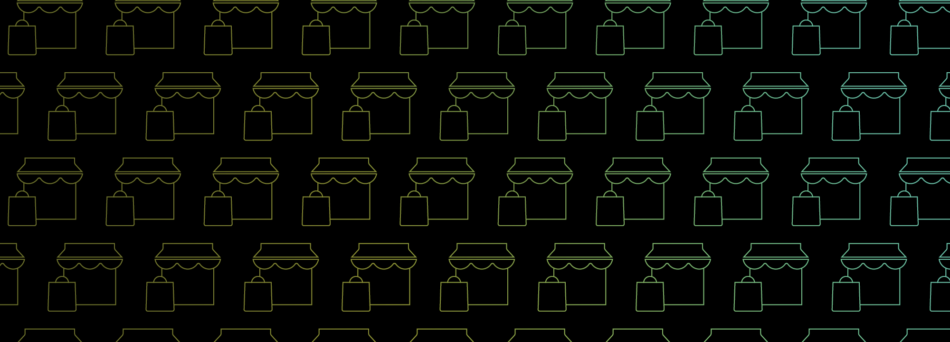
How to Reduce Retail Waste
Supermarkets, corner shops, boutique stores, and all other types of retail outlets produce waste every day. This includes everything from unsold goods left on the shelf to expired food in the back and packaging from many products. Much of it is unavoidable but there are steps retailers can take to reduce waste.
There are more than 250,000 retail outlets in the UK that sell everything from clothes and furniture to food, tools, and specialist products. Strong waste management is essential for any shop. Reducing retail waste helps cut carbon emissions and protect the environment, but it can also boost brand reputation with more eco-conscious consumers about.
Recycling, reusing, and recovering retail waste is important but reducing rubbish in the first place is the best course of action. Find out how to reduce retail waste in your shop with the following expert advice.
Get a free quote
Get a fast FREE quote for waste collection
- Free quote within 1 hr
- Any type of retail waste
- FREE bins and delivery
- We cover all of the UK
Why is it important to
reduce retail waste?
Reducing retail waste is important as it helps protect the environment in various ways. Creating less rubbish in shops, stores, and supermarkets means there’s a lower chance of waste going to landfill. This saves valuable space and avoids any food or other waste rotting and producing methane that contributes to global warming.
Producing less waste in retail also cuts carbon emissions. Less waste is transported from retailers to waste management facilities, which saves on fuel. Recycling everything from cardboard packaging to unsold clothes also requires lots of energy and fuel for transportation. Therefore, minimising waste in the first place means less energy is required.
With less waste to manage from your shop you’ll need fewer collections, which can save your business money on its waste management costs. Many consumers are more environmentally aware than ever too, so reducing waste can have a positive impact on your retail brand’s reputation.

How to reduce waste in retail
Every shop should have a good waste management plan in place covering the types of waste produced, how they’re stored, removed, and disposed. Use this as a starting point to assess the amount of waste created and identify areas to reduce it. A few small changes can help reduce retail waste whatever the type and size of store.
Reducing waste in retail involves focusing on different waste types. These are a few ways to reduce waste in retail:
- Focus on food waste – excessive food waste is a major challenge for many retailers that sell food and drink products. Many unsold edible items past their expiry dates are sadly wasted. Ensuring all food and drink items are stored in the correct conditions, regularly rotated, and handled carefully reduces the risk of wastage. Any food products that will be waste should be donated to charities, foodbanks, or community groups where possible.
- Prevent packaging waste – packaging waste is another key area for the retail sector. Retailers have little control over the packaging of products but can work with suppliers that use recycled or reusable packaging. Minimise the packaging you use when sending orders out to customers. Donating, reusing, or recycling wooden pallets from deliveries is also vital.
- Downscale delivery waste – packaging up and delivering orders to customers from any shop can create excess waste. Use appropriately sized bags and boxes and try to package orders together rather than having one bag or box per item. Some retailers offer a bag buy back scheme, so customers receive a discount to return packaging from previous orders.
- Automate inventory tracking – good stock control is essential to reduce waste in retail, especially for fresh food and items with short sell by dates. Advanced automation and software technology can improve inventory tracking and adapt processes so stores receive deliveries in shelf order. This can help reduce overordering and speed up getting deliveries onto the shop floor.
- Thoroughly train staff – workforces are responsible for some retail waste, so proper training can improve waste management. Instruct staff of your retail outlet’s waste management policy with instructions about how to dispose of specific materials with clearly labelled recycling bins. Highlight areas such as reducing breakages through safe handling of products, minimising shrink wrap use, and reusing boxes where possible.
- Switch to sustainable suppliers – retailers have little control over how they receive goods but choosing to work with suppliers who use minimal or recyclable packaging is a good place to start. Some suppliers may even agree to take back pallets, bags, or boxes for reuse when bringing their next delivery. This can significantly reduce how much packaging and other waste your retail outlet produces.
- Discount damaged goods – packaging and products can become damaged in transit, in the warehouse, or on the shop floor. Rather than sending these to waste, simply apply a discount related to the extent of the damage. If it’s unsellable to customers you could offer the items to staff at a reduced rate. Alternatively, donate to a charity to use or sell at a low price.
- Go digital – significantly reduce paper waste by offering digital receipts and moving catalogues, newsletters, and other literature online. Electronic shelf labels rather than individually pricing items saves on stickers and paper waste too.

Read more waste reduction guides
Retail isn’t the only sector that can do more to reduce waste. Explore more of our expert guides to reducing many types of waste and across other industries.
Get a fast and free quote
Get a fast FREE quote for your waste collection
- Free quote within 1 hr
- Any type of retail waste
- FREE bins and delivery
- We cover all of the UK